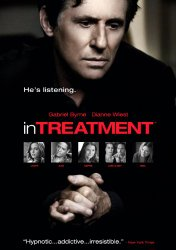 What is the best approach to sex therapy? Psychoanalysis or brief, solution focussed counselling? Or is there an alternative? What should I look for in a sex therapist?
What is the best approach to sex therapy? Psychoanalysis or brief, solution focussed counselling? Or is there an alternative? What should I look for in a sex therapist?
Sex Therapists Online: It’s the Relationship That Counts
Before people start trying to find a sex therapist online, it’s common for them to reading comparisons between short-term, time-limited counselling interventions like CBT and long-term therapy such as the intensive sessions of traditional psychoanalysis. But counselling and therapy is a diverse and broad field and in fact there are many other options and variations available to those seeking help.
My own opinion of the various approaches to therapy and to the different methods and techniques for sexual problems is that the relationship – the rapport, trust and therapeutic collaboration built up between the practitioner and client – is probably more important than whether the consultations happen once a week for 2 months or 4 times a week for 5 years (or something in between). Of course, depending on their experience and preferences, individuals respond better to different approaches. But if you don’t get on so well with your therapist or they are uncomfortable discussing sexual issues, the type of therapy probably won’t make much of a difference in itself.
Make an Appointment for Online Therapy
CBT for Sex Therapy
Cognitive behaviour therapy (CBT) and short-term solution focussed strategies are commonly offered as treatment for difficulties with enjoying sex, concerns about preoccupation with sex or erection problems not caused by organic factors. If they are not a side effect (for example, of medication or alcohol use) and don’t have a basis in a physical condition such as diabetes or heart disease, sexual difficulties often have psychological causes like stress, anxiety or burnout, performance concerns and issues around sexual orientation or identity. Counselling can also assist where social cultural factors like conflict with religious or cultural values or societal taboos play a part in not feeling comfortable with sex or coming out and sometimes a therapist takes a role in correcting misconceptions about sexual practices such as masturbation or anal sex.
The appeal of CBT and brief counselling lies in the fact it is usually offered as a time-limited treatment and for many there is an implicit (or explicit) promise that they will be ‘cured’ or the problem will be ‘fixed’ at the end of the series of sessions. The widespread use of the expression ‘evidence-based treatment’ also suggests a kind of promise of effectiveness. My professional experience is that such treatments often work but in psychology there are no guarantees.
Psychoanalysis for Sex Therapy
 Psychoanalysis has been portrayed extensively – but not always reliably – in popular culture. Images of ‘patients’ lying on couches, talking about their childhoods to largely silent, fatherly-looking men and ‘doctors’ in TV episodes such as The Sopranos, Seinfeld and the Gabriel Byrne series In Treatment are examples that come to mind. Of course the reality is often somewhat different, but traditionally psychoanalysts do meet with their clients several times a week and this pattern can go on for years. I have heard good reports from some people of the benefits of psychoanalysis but it is clear that it is not for everyone and once again, successful outcomes appear to be strongly dependent on whether a positive therapeutic relationship is established or not.
Psychoanalysis has been portrayed extensively – but not always reliably – in popular culture. Images of ‘patients’ lying on couches, talking about their childhoods to largely silent, fatherly-looking men and ‘doctors’ in TV episodes such as The Sopranos, Seinfeld and the Gabriel Byrne series In Treatment are examples that come to mind. Of course the reality is often somewhat different, but traditionally psychoanalysts do meet with their clients several times a week and this pattern can go on for years. I have heard good reports from some people of the benefits of psychoanalysis but it is clear that it is not for everyone and once again, successful outcomes appear to be strongly dependent on whether a positive therapeutic relationship is established or not.
But what of those approaches that lie somewhere in between the typical 6-10 sessions of solution focussed counselling and months or years of intensive psychoanalysis?
Private Therapy for Sexuality & Sex Related Issues… Online
I am not a psychoanalyst but I do sometimes work with CBT practices and short series of solution focussed therapy. I also have clients who have seen me for 2 years or more. Often these people have started out meeting with me once or even twice a week. After time they might have changed their appointments to once a fortnight and even eventually to once a month. In each case, we are not following a method or technique prescribed by a particular therapeutic model, but taking an individually tailored pathway through collaboration and what works best for them.
When it comes to sexual identity or sexuality, some of us benefit most from a kind of psychological ‘maintenance’. In other words, not intensive, long-term therapy and also not a quick-fix or method that promises results that cannot be guaranteed. Instead we can choose to have a regular and on-going relationship with a practitioner who acts, in the first instance, as a sounding board and confidante but also offers fresh ideas and suggestions you can try out as required. I have clients who identify as heterosexual, clients who describe themselves as gay men or lesbians and others who identify as bisexual. Others don’t use these expressions or are coming to new terms with who they are. I invite people to find their own language of identity.
One of the most effective aspects of therapy is the opportunity to talk openly and candidly with another professional on a regular basis. This is one of the benefits of talk therapy. Not everyone feels they can speak freely and openly about their internal life or personal thoughts. Regular and ongoing consultations with a counsellor or coach can assist in maintaining mental health similar to the way some people see a personal trainer or physical or massage therapist for body maintenance. Meeting for online webcam therapy or through email counselling offers a level of privacy and convenience that you might not get seeing a ‘face to face’ therapist. Talking freely about sex over time can help us to come to new terms with our sexual orientation, our identity and our sexual relationships with others or with specific issues like the use of pornography.
If you would like to know more about my services, please contact me by email to ask any questions.
Ash Rehn BSocWk, MA, MAASW (acc.)
online counsellor and webcam therapist
AASW accredited mental health social worker